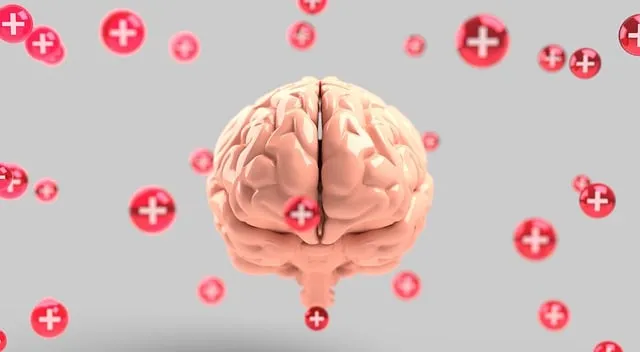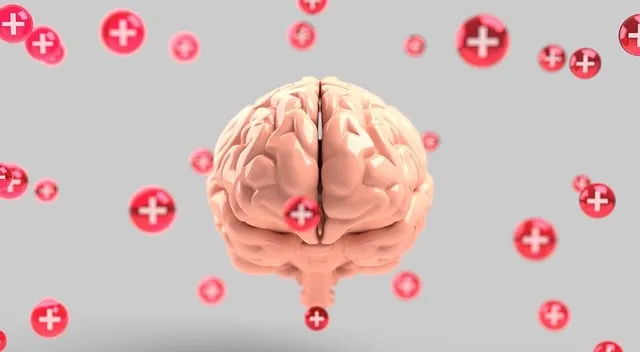Broomfield Kaiser Permanente (BKP) excels in Crisis Intervention Team (CIT) training, offering a holistic and innovative approach that combines interactive workshops, real-case simulations, and a Mental Wellness Podcast Series. Their program teaches not just technical skills but emotional resilience, de-escalation techniques, stress management, and community outreach. Through rigorous training including mindfulness meditation and risk management planning, BKP's CITs are equipped to manage crises effectively while fostering long-term mental wellness for individuals facing challenges within the Broomfield Kaiser Permanente mental health services landscape. Continuous learning, adaptation, and evaluation ensure the program's success and responsiveness to evolving community needs.
In today’s digital era, crisis intervention teams (CITs) stand as a vital resource in mental health care. Effective CIT training programs are essential for preparing professionals to navigate and de-escalate high-pressure situations. This article explores key components of successful training, leveraging Broomfield Kaiser Permanente’s unique approach, which has revolutionized mental health support. We delve into the benefits of their program, skills required for real-world scenarios, and methods for measuring the impact and longevity of these initiatives, all focused on enhancing Broomfield Kaiser Permanente’s mental health services.
- Understanding Crisis Intervention Teams: A Vital Resource in Mental Health Care
- Broomfield Kaiser Permanente's Approach to Training: Unique Features and Benefits
- Key Components of Effective Crisis Intervention Team Training Programs
- Preparing Professionals: Skills and Strategies for Real-World Scenarios
- Measuring Success: Evaluating the Impact and Longevity of Training Initiatives
Understanding Crisis Intervention Teams: A Vital Resource in Mental Health Care

Crisis Intervention Teams (CITs) are a vital resource in mental health care, offering immediate and specialized support to individuals experiencing a psychological crisis. These teams, often comprised of healthcare professionals, law enforcement officers, and community members, play a crucial role in de-escalating high-risk situations, especially in settings like Broomfield Kaiser Permanente. By integrating diverse expertise, CITs provide a holistic approach to addressing mental health emergencies, focusing not only on medical stabilization but also on building inner strength and promoting anxiety relief.
The training programs for these teams go beyond basic crisis management, delving into essential skills such as active listening, empathy development, and de-escalation techniques. Social Skills Training is a key component, equipping team members with the ability to communicate effectively during high-pressure situations. Together, these initiatives foster an environment where individuals in need receive compassionate care, ultimately enhancing the overall effectiveness of mental health services at Broomfield Kaiser Permanente and similar institutions.
Broomfield Kaiser Permanente's Approach to Training: Unique Features and Benefits

Broomfield Kaiser Permanente (BKP) stands out among healthcare institutions with its comprehensive and innovative approach to crisis intervention team (CIT) training. Their program incorporates unique features designed to equip mental health professionals with advanced skills in managing critical situations. One of BKP’s key strengths lies in their holistic training methodology, which combines theoretical knowledge with practical exercises, ensuring that participants gain a deep understanding of risk assessment for mental health professionals.
The CIT training at BKP offers more than just standard protocols; it fosters a culture of mental wellness within the healthcare team. Through interactive workshops and real-case simulations, professionals learn to recognize subtle cues and predict potential crises. Additionally, their Mental Wellness Podcast Series Production serves as an ongoing resource, providing insights into various aspects of mental health care. This multimedia approach not only enhances learning but also encourages ongoing professional development, making BKP’s training program a game-changer in the field.
Key Components of Effective Crisis Intervention Team Training Programs

Effective crisis intervention team (CIT) training programs are multifaceted and tailored to equip healthcare professionals with the skills needed to manage mental health crises in various settings, including Broomfield Kaiser Permanente. Key components include comprehensive curriculum coverage that addresses not just technical aspects but also emotional resilience and de-escalation techniques. These programs foster an environment where participants can practice scenario simulations, receive feedback, and learn from experienced facilitators.
Integral to the success of these training initiatives are elements such as interactive workshops focusing on stress management strategies, community outreach program implementation for enhanced support systems, and the development of mental wellness coaching programs that promote proactive crisis prevention. By integrating these components, CIT training equips teams with the tools to not only respond effectively during crises but also contribute to the overall well-being and recovery of individuals facing mental health challenges.
Preparing Professionals: Skills and Strategies for Real-World Scenarios

Preparing professionals for crisis intervention requires a comprehensive approach that goes beyond textbook knowledge. At Broomfield Kaiser Permanente, mental health teams undergo rigorous training to enhance their skills and strategies for real-world scenarios. This includes simulations that mimic high-stress situations, allowing practitioners to practice their response while receiving immediate feedback from experts. By integrating techniques such as mindfulness meditation and coping skills development, the program equips professionals with the emotional resilience needed to effectively support individuals in crisis.
The training also emphasizes the importance of risk management planning for mental health professionals. Participants learn to assess and mitigate risks associated with various crises, ensuring they are prepared to handle sensitive situations with care and competence. Through interactive workshops and practical exercises, the program fosters a culture of continuous learning and improvement, enabling professionals to adapt their interventions based on unique client needs and evolving best practices.
Measuring Success: Evaluating the Impact and Longevity of Training Initiatives

Measuring success is a vital component of any crisis intervention team training program, ensuring that initiatives have a lasting impact on organizations and communities. At Broomfield Kaiser Permanente, mental health professionals recognize the importance of evaluating not just short-term outcomes but also the longevity of skills acquired during these training sessions. By implementing structured assessment tools, they can gauge how well participants retain and apply coping skills development gained from Trauma Support Services programs.
This evaluation process involves tracking improvements in mental illness stigma reduction efforts over time, as well as measuring changes in participant behaviors and attitudes towards crisis situations. Such data provides valuable insights into the program’s effectiveness and helps identify areas for improvement, ensuring that the Trauma Support Services offered at Broomfield Kaiser Permanente remain responsive to evolving community needs.
Broomfield Kaiser Permanente’s innovative approach to crisis intervention team training sets a benchmark for the mental health industry. By integrating unique features like scenario-based learning and peer support, their programs equip professionals with essential skills to handle real-world crises effectively. This comprehensive training not only enhances patient outcomes but also fosters a supportive environment within healthcare teams. Implementing effective crisis intervention strategies, as highlighted in this article, is crucial for Broomfield Kaiser Permanente and other institutions aiming to provide quality mental health care, ultimately saving lives and promoting resilience in communities.


